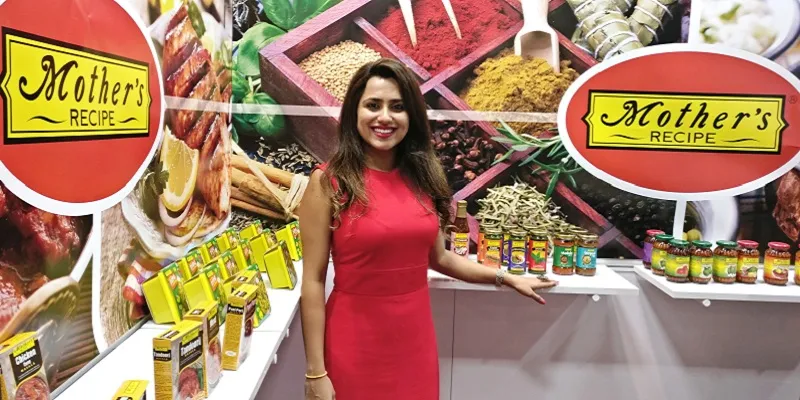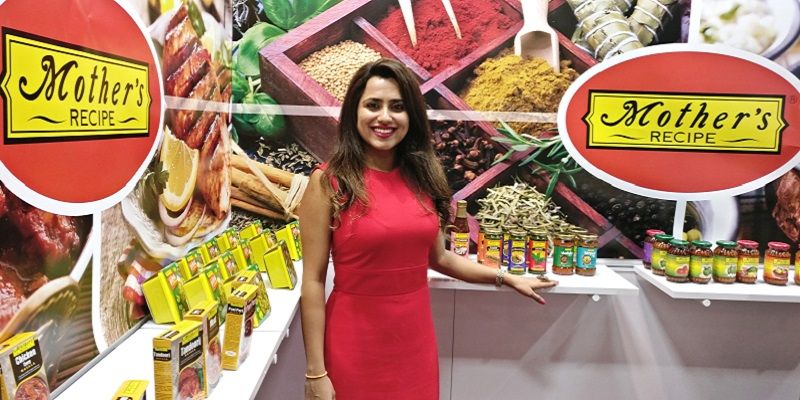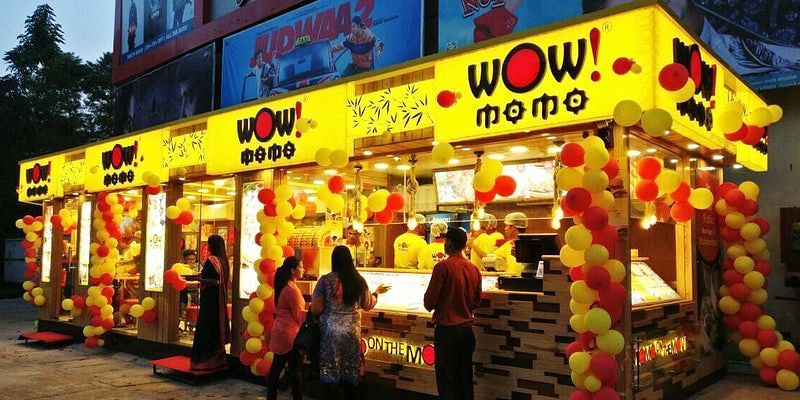Mother’s Recipe brings a tradition of over 115 years in a bottle
Pune-based Mother’s Recipe has today become synonymous with pickles, but this century-old legacy brand has much more to offer.
It was the year 1901. Horse carriages and motor-driven cars were still drawing dust along the muddy lanes of India. While the country was fighting a battle against colonial rule, Desai Brothers Limited saw a business opportunity in a plant that was imported from the West — tobacco.
While the British were busy smoking their pipes, Haribhai V. Desai swam against the tide and started his own factory, the now famous Desai Bidis. In over 115 years of its existence, Desai Brothers Limited has withstood every storm, even going on to build supplementary businesses like logistics, hotels, speciality chemicals, hospitals, and food processing.
Today employing over 1,25,000 people, Desai Brothers is also the parent company of the famous brand, Mother’s Recipe. Over 17 years ago, while expanding business verticals, the giant found food to be one of its most profitable areas.
Beginning the millennial journey
The actual journey of Mother’s Recipe began in 2002, when Desai Brothers acquired the brand. Sanjana Desai, Head – Business Development, Food Division, Desai Brothers, says,
“At that point in time, pickles were available only in Maharashtra and a few other states. The family wanted to diversify and the food business was a growth sector we were looking at. My father took over the business first and I remember seeing him going to the mandis at four in the morning and checking the mangoes that went into making the pickles.”
For Sanjana, the foray into Mother’s Recipe was serendipitous. From the young age of 18, she had been drawn to fashion, and that was the field she wanted to enter. Her father never stopped her from chasing her dreams. On the contrary, it was his show of support for her passion that actually led her to the family business — all he asked of her was to “learn how to read my accounts first,” which is, after all, the core of any business.
“His advice struck a chord and I went on to pursue my majors in finance and economics with a minor in international business from a business school in Rhode Island, US. Having done that, I also enrolled myself in a fashion school in Los Angeles to hone my skills and get an understanding of the finer nuances. These years of education broadened by understanding of business and I discovered that I was meant to join my family business, help it grow, and take the legacy forward,” says Sanjana.

Entering the manufacturing world
Sanjana was the first woman in four generations to join the family business. She says that after completing her graduation, as a 23-year-old 'entitled' girl, the first thing was to learn the ropes of the business she was getting into and subsequently earn respect and positions based on merit.
“Being the youngest one in the top management, I knew my work needed to talk louder than my surname.”
This meant understanding the business from scratch. Understanding the raw materials and getting quality products in the correct quantities during the right seasons was an education that took a while. Following her father’s advice, Sanjana made it a point to acquaint herself with the processes by visiting the factory daily.
One of the first product launches Sanjana was a part of — a nationwide launch in 2004 —was blended spices in zipper storage bags.
Lesson well learnt
After spending money on the launch and advertising, the team realised that nobody was really looking for that product as the market had already been saturated. Another thing they learnt was that people were happy with their original packaging — there was no need for innovation in that sphere.
“It was one of the first lessons we learnt. Creating the right product at the right time is as important as ensuring you have a great idea. But after that lesson, we have never withdrawn a single product from the market.”
Today, Mother’s Recipe has over 50 variants of pickles, and, true to the name, the team has always focused strongly on researching the recipes, testing them out, and only then putting them into production. “It was what our grandmoms would make, and it was important to ensure that the recipe was perfect,” adds Sanjana.
Going back to the roots
After a year of contract manufacturing with ADF, they started out on their own and had a food factory up and running within three months. In the initial phase, they had a strong hold in the western region, with presence in the Delhi and Bengaluru market being limited. Exports were also restricted to markets like Dubai, Singapore, and Malaysia.
To ensure that the recipes are authentic, a team goes to the source of origin. Citing an example, Sanjana says they have launched a range of Kerala foods in the pickles and ready-to-eat segment. So the first order of business was to send the R&D team to Kerala. Says Sanjana,
“We had them stay there for a month and study the spices and the food they make in the houses in the region. Reading up and researching old handwritten recipe books, what raw materials they use, what kind of oil they cook in, the preparation process, when the spices are added, when they are not to be added — everything is studied from scratch because it is essential to understand these nuances.”
In 2003, they started aggressive expansion of the Mother’s Recipe brand by extending their distribution network to 20 states in India and exporting products globally.
Since the manufacturing is done in-house, the raw materials are procured seasonally in large quantities. These are then cleaned and cut according to the recipe. Sanjana mentions that every variety of mango pickle has its own cutting process.
Some are automatically cut, while others need manual work. The team takes care to use the right oils, roast spices in-house, and marinate the pickles according to the practices of the region they have been inspired by. Bottling and packaging are done only when the orders come in every month.

“We’ve tried to automate it as much as possible to have complete control over quality. But it is a rigorous process,” adds Sanjana.
Entering the world of numbers
Apart from developing products, Sanjana has also created the complete marketing communication platform for Mother’s Recipe. “In the online space we are currently selling our products through platforms like BigBasket, Grofers, Amazon, Aaramshop, Farm2kitchen, MyGrahak, Callandorder, and FreshnDaily, apart from our own exclusive e-store,” she says.
In FY 2014–2015, Mother’s Recipe clocked a revenue of Rs 200 crore, which went up to Rs 250 crore in FY 2015–16. This year the brand is expecting a 25 percent growth and in the next three years is looking at a Rs 500 crore turnover.
According to Euromonitor, Mother’s Recipe is said to have a 25 percent market share in the Rs 400 crore pickle market; a 20 percent market share in the Rs 300 crore cooking paste industry; and a 10 percent market share in the Rs 400 crore ready-to-cook market.
At present, the brand has a strong presence in India and the Middle East, Australia, UK, Europe, US, Canada, and Africa. It has been one of the largest providers of traditional and authentic Indian food products, exporting to more than 42 countries in the world.
The current product portfolio consists of pickles, condiment pastes, mango chutneys, ready-to-eat meals, blended spices, ethnic chutneys, papad, ready-to-cook spice mixes, and instant mixes. The focus, Sanjana emphasises, is to avoid preservatives and use natural ingredients, as far as possible.
In November 2015, Mother’s Recipe acquired Kolkata-based Elmac Agro Manufacturing, which owned the Elmac brand, for Rs 30 crore. With this expansion, the brand expanded its portfolio to sauces and increased its distribution network from 150 to 350 in the eastern region.
Elmac, in itself, has a total revenue of Rs 40-50 crore, of which Rs 10 crore came from the domestic market. Desai Brothers have also planned on investing Rs 40–50 crore in manufacturing plants in India. The company has stated that it has a corpus of Rs 50-100 crore for acquisitions.
Exports are said to account for over 40 percent of the company’s turnover. The company also acquired Spreadon and has entered the spreads and dips segment as well. The other legacy brands that compete with Mother’s Recipe are MTR and Priya’s Pickles from the south.
Sanjana believes that Mother’s Recipe’s journey has just begun. She says,
“I remember all those days as a child when I used to accompany my father and grandfather to office, observing them putting in all the hard work, making tough business decisions along with stories of my great grandfather and how he started out small and worked his way up the ladder. So I still have a longer way to go.”











